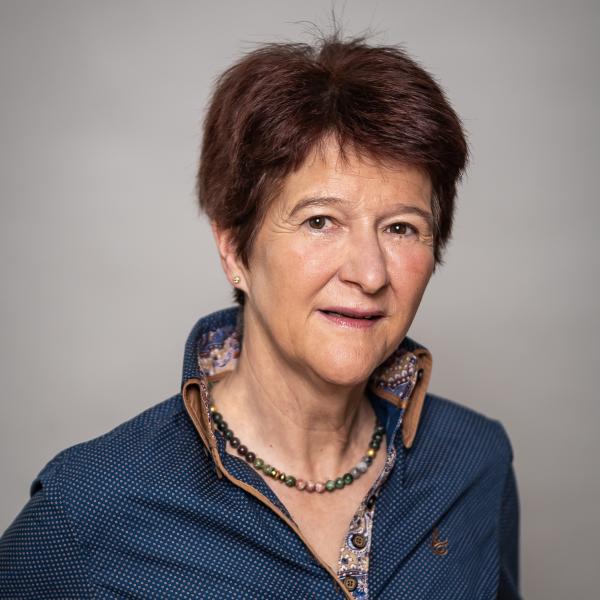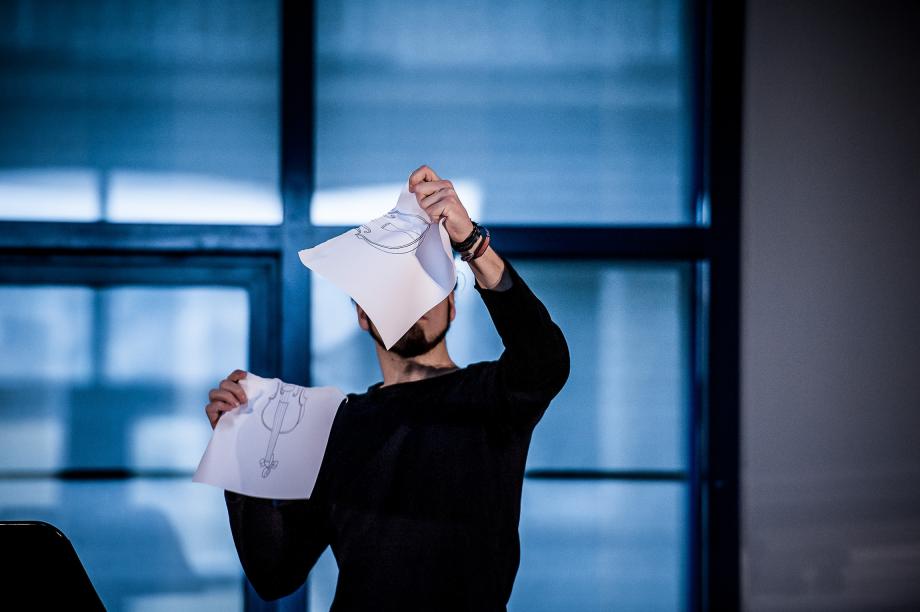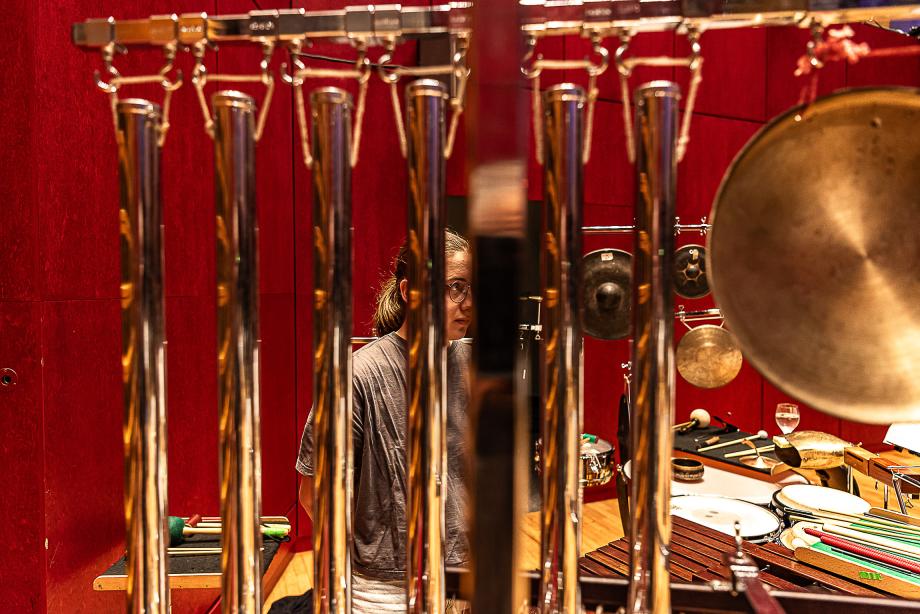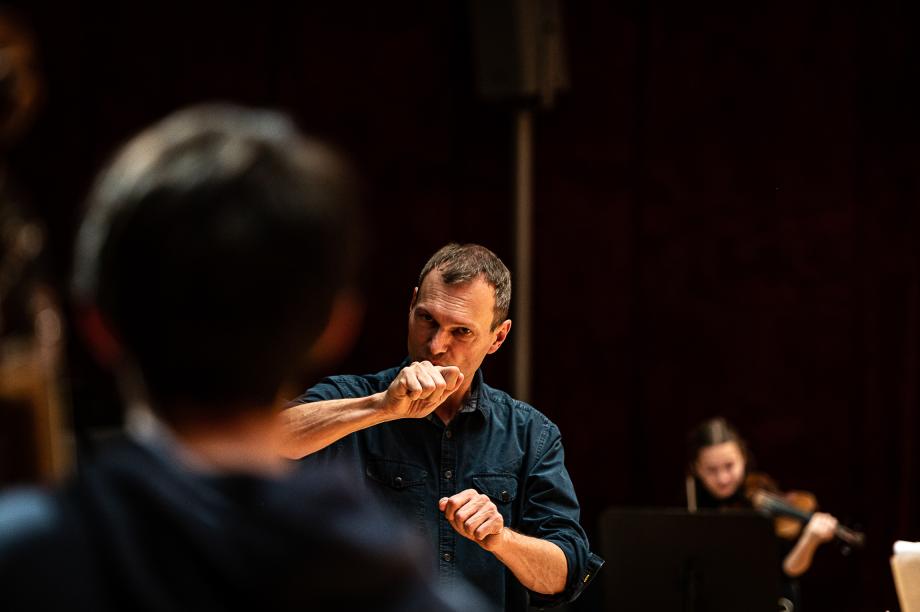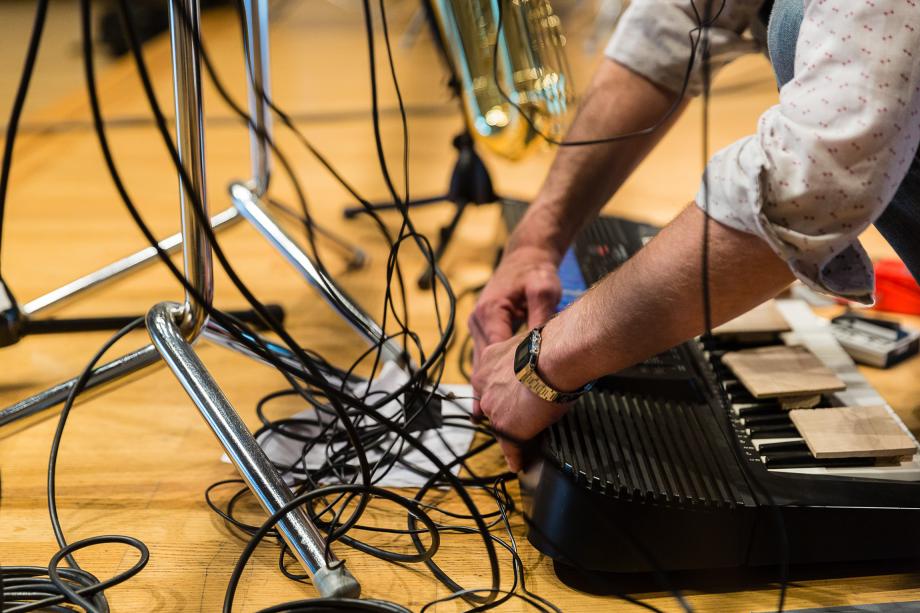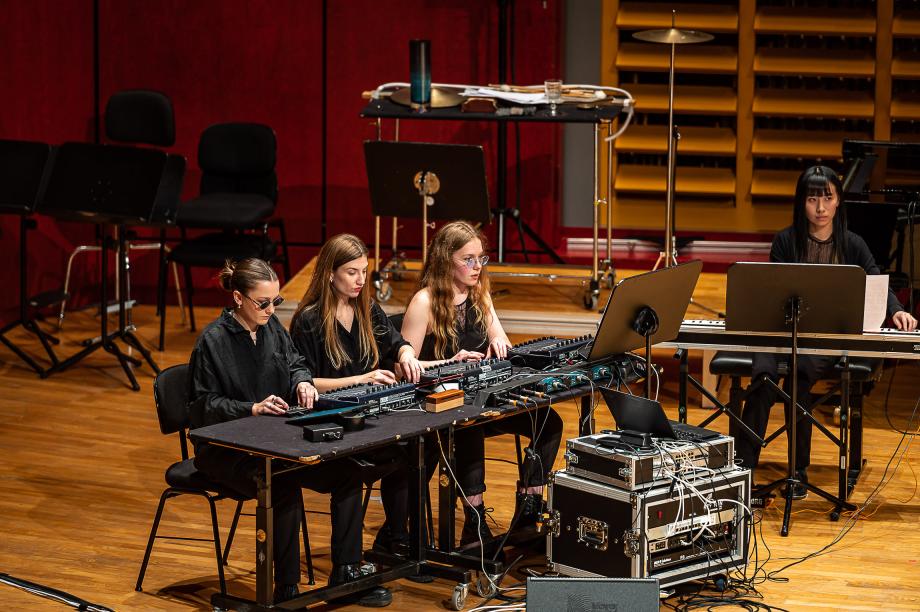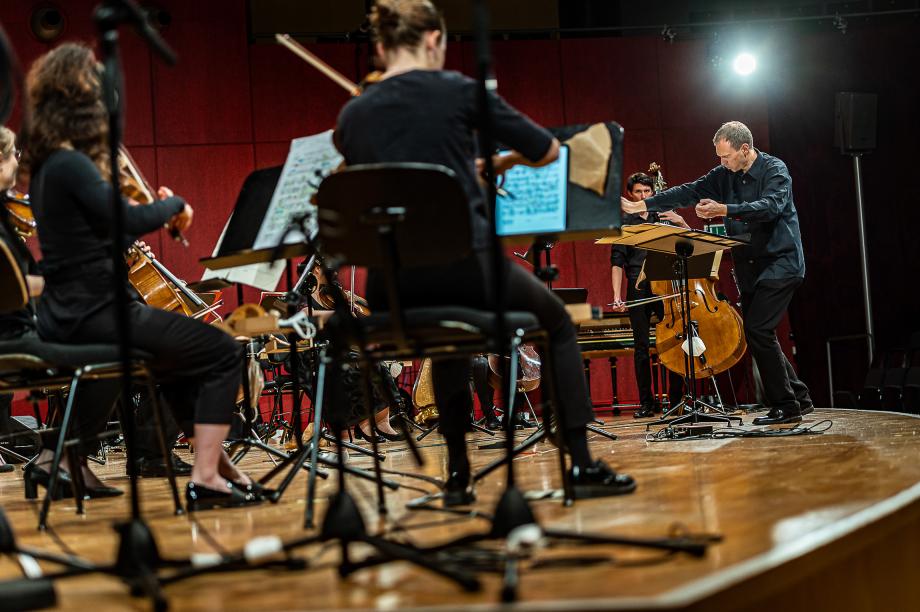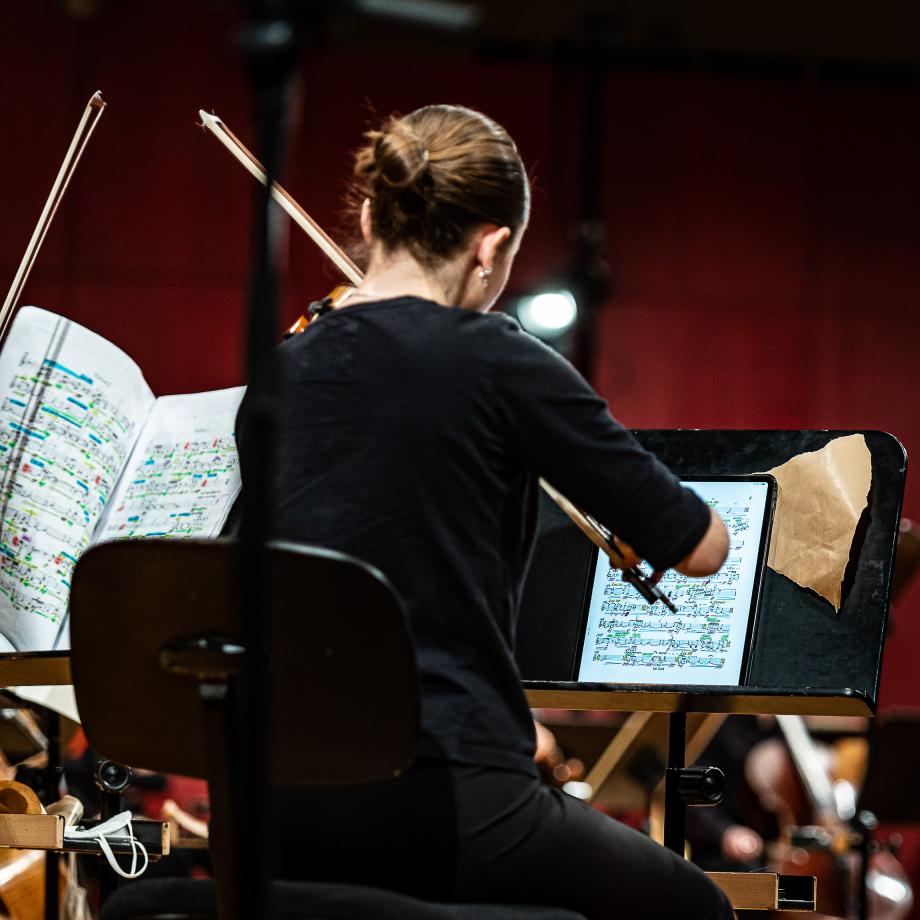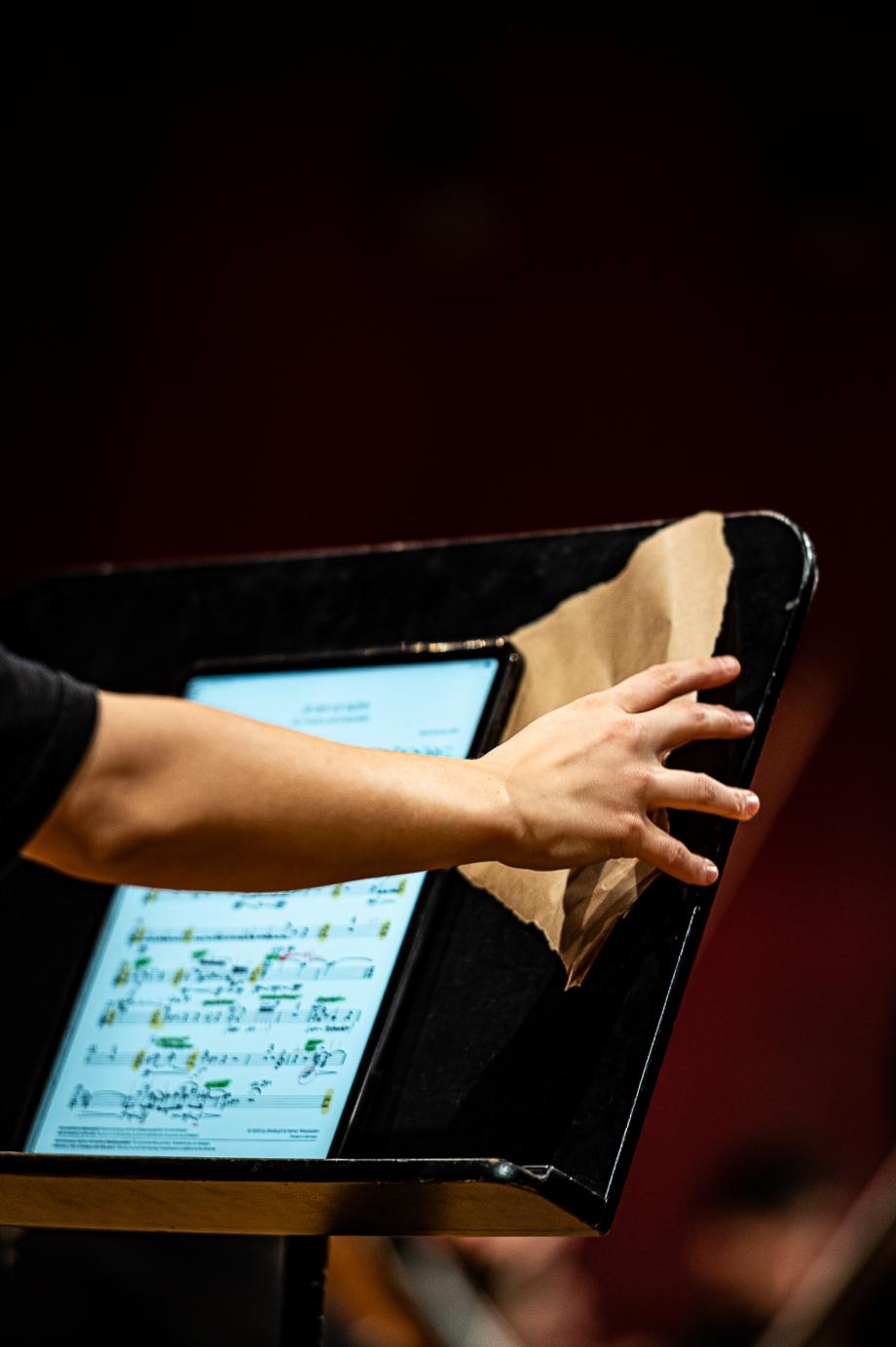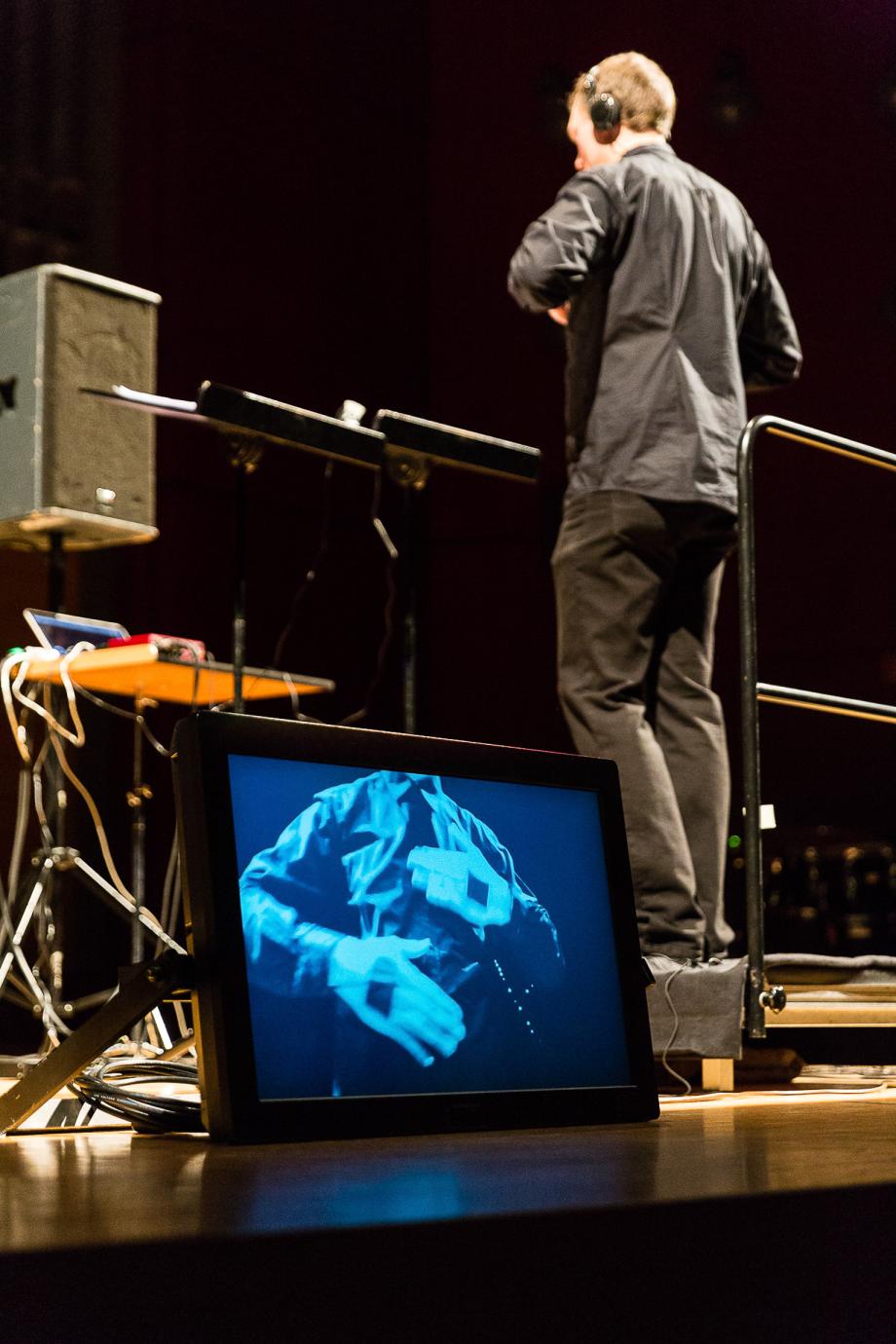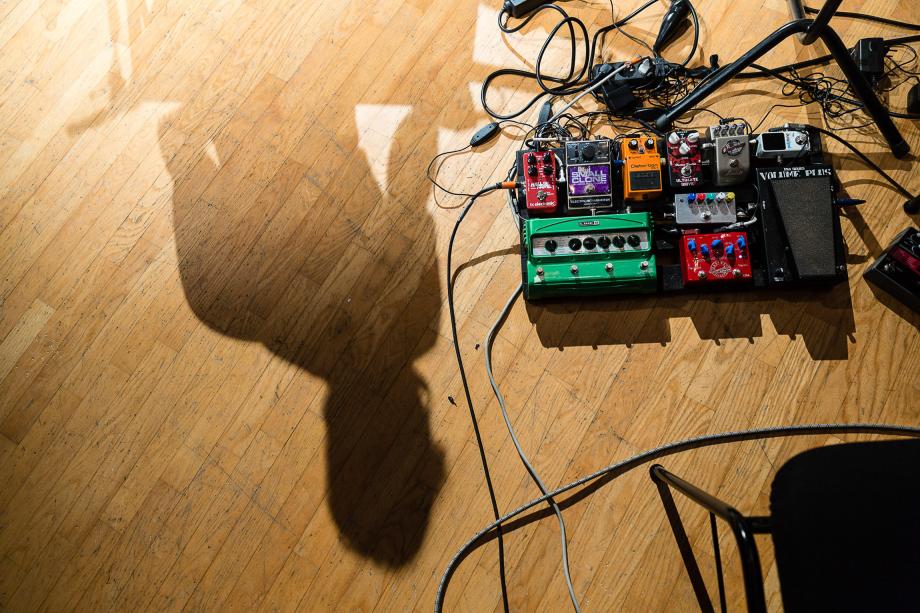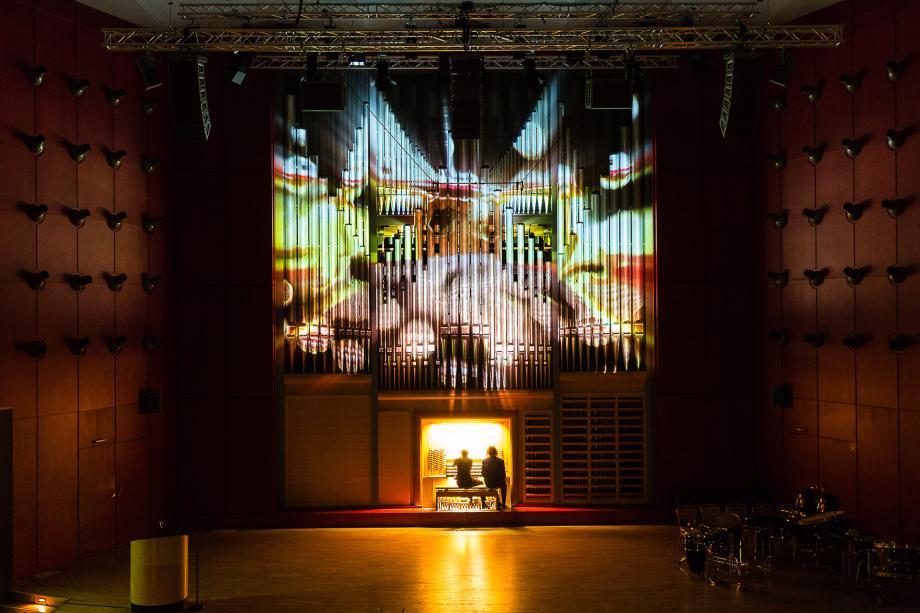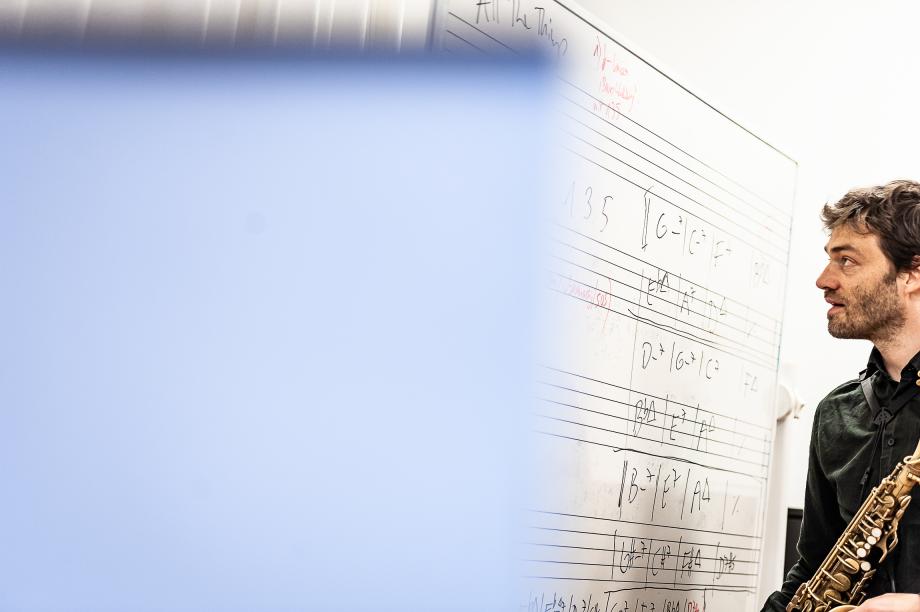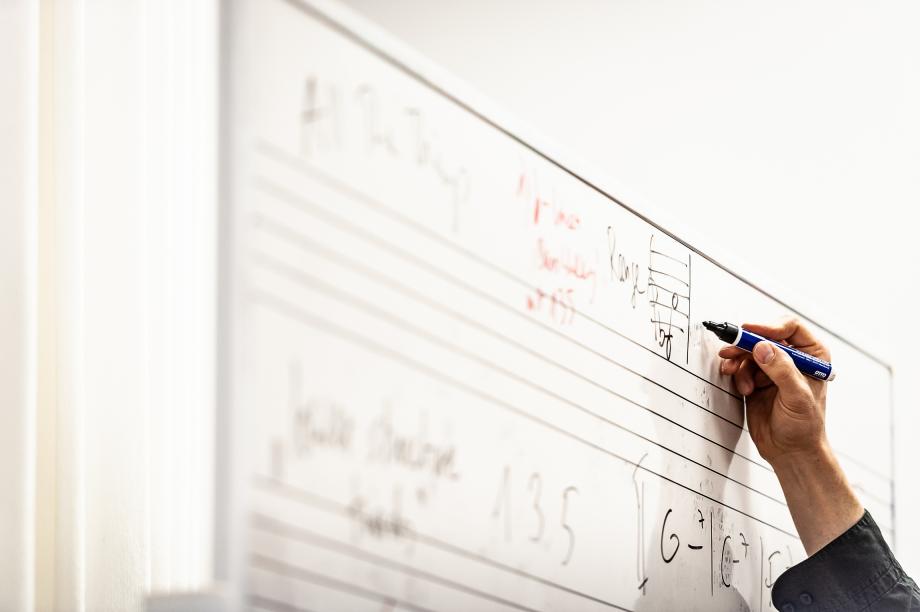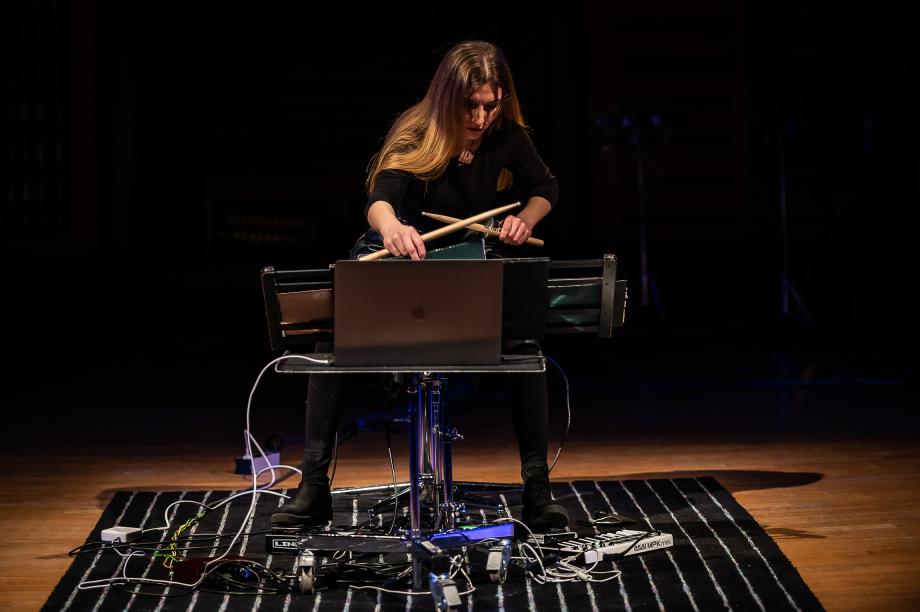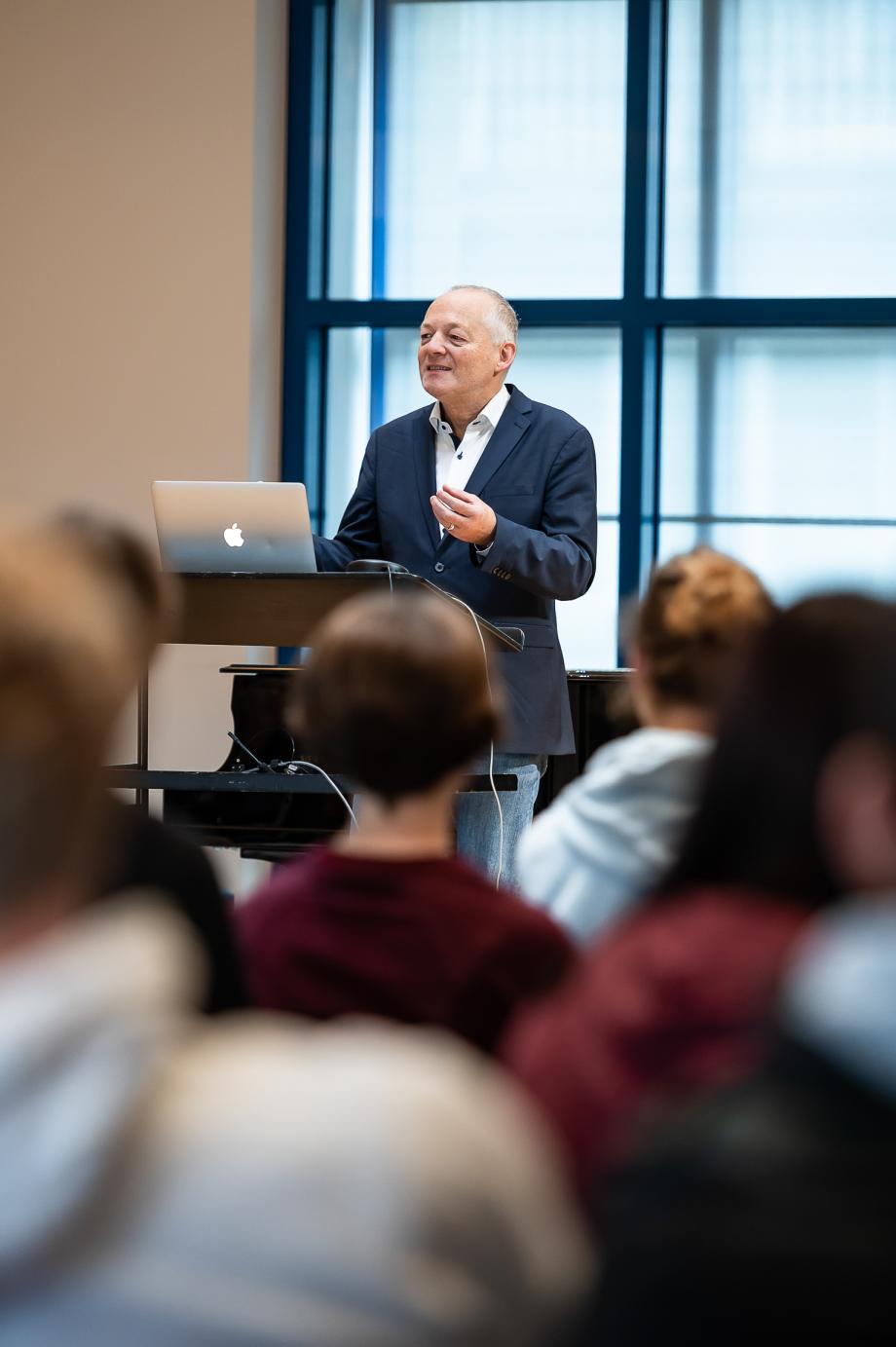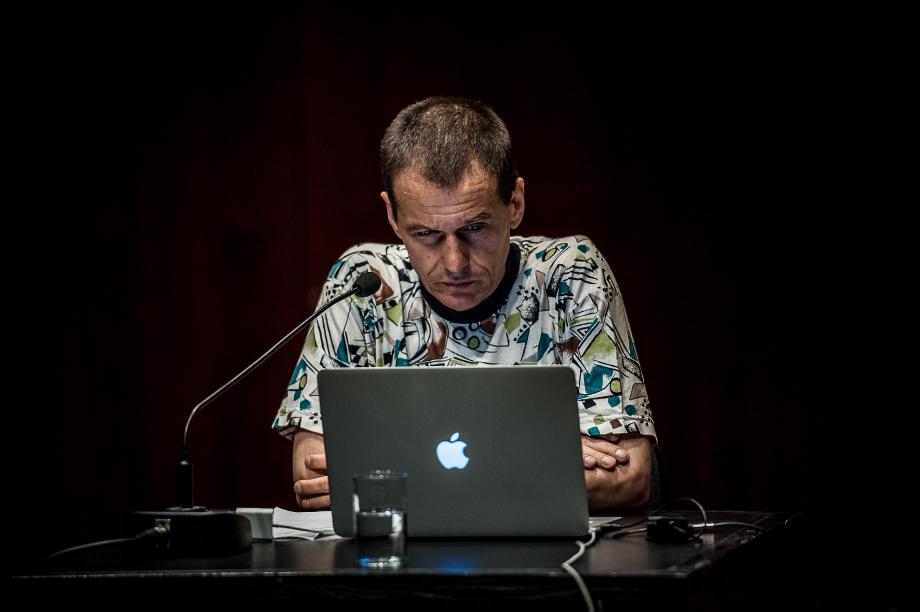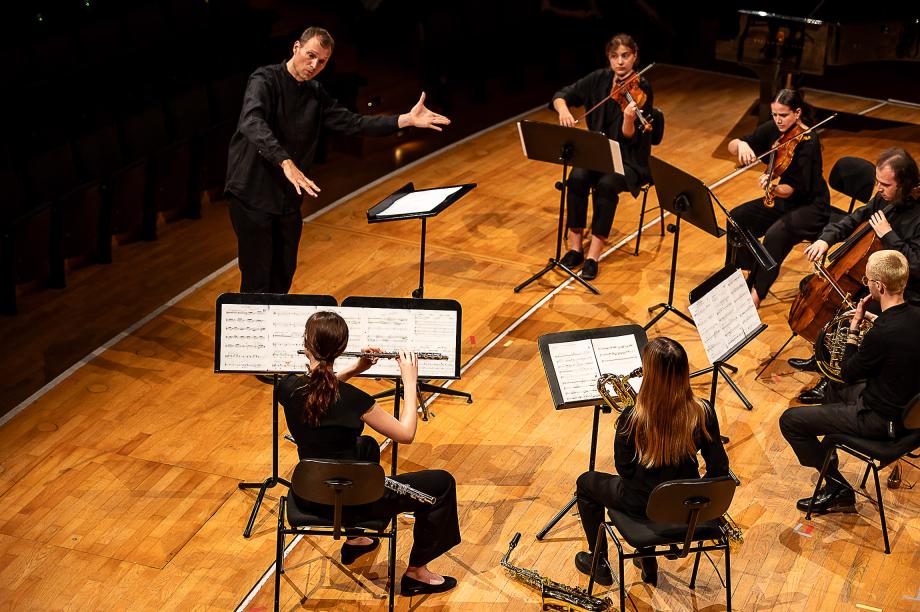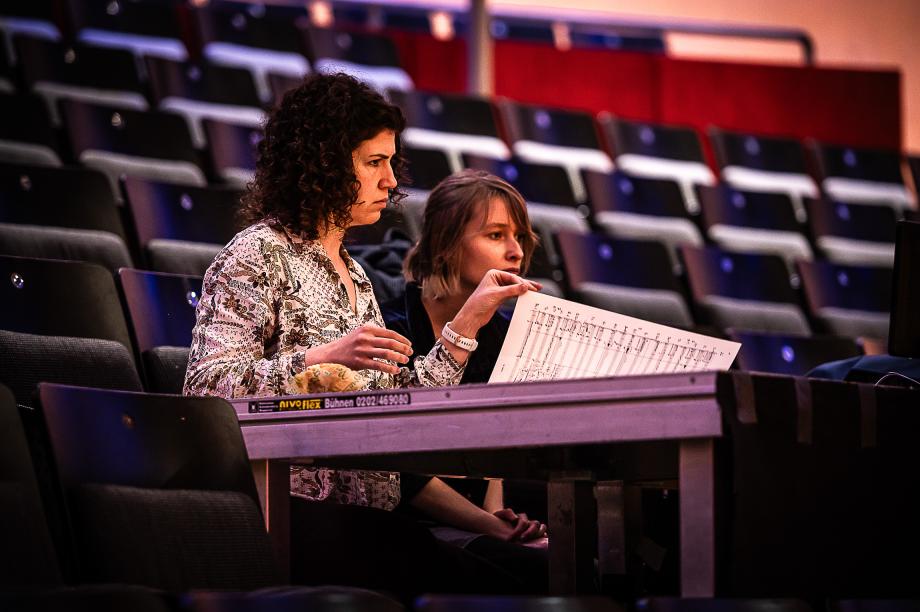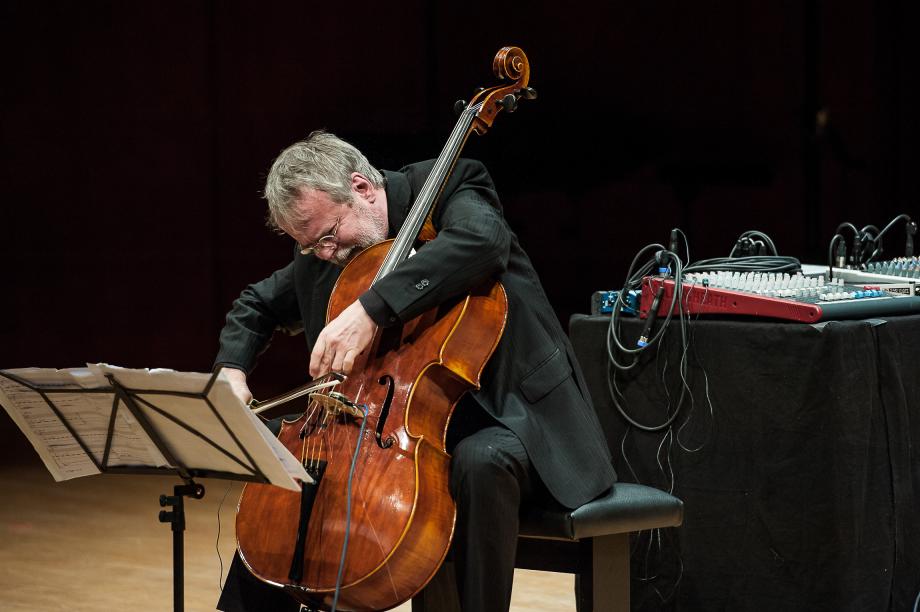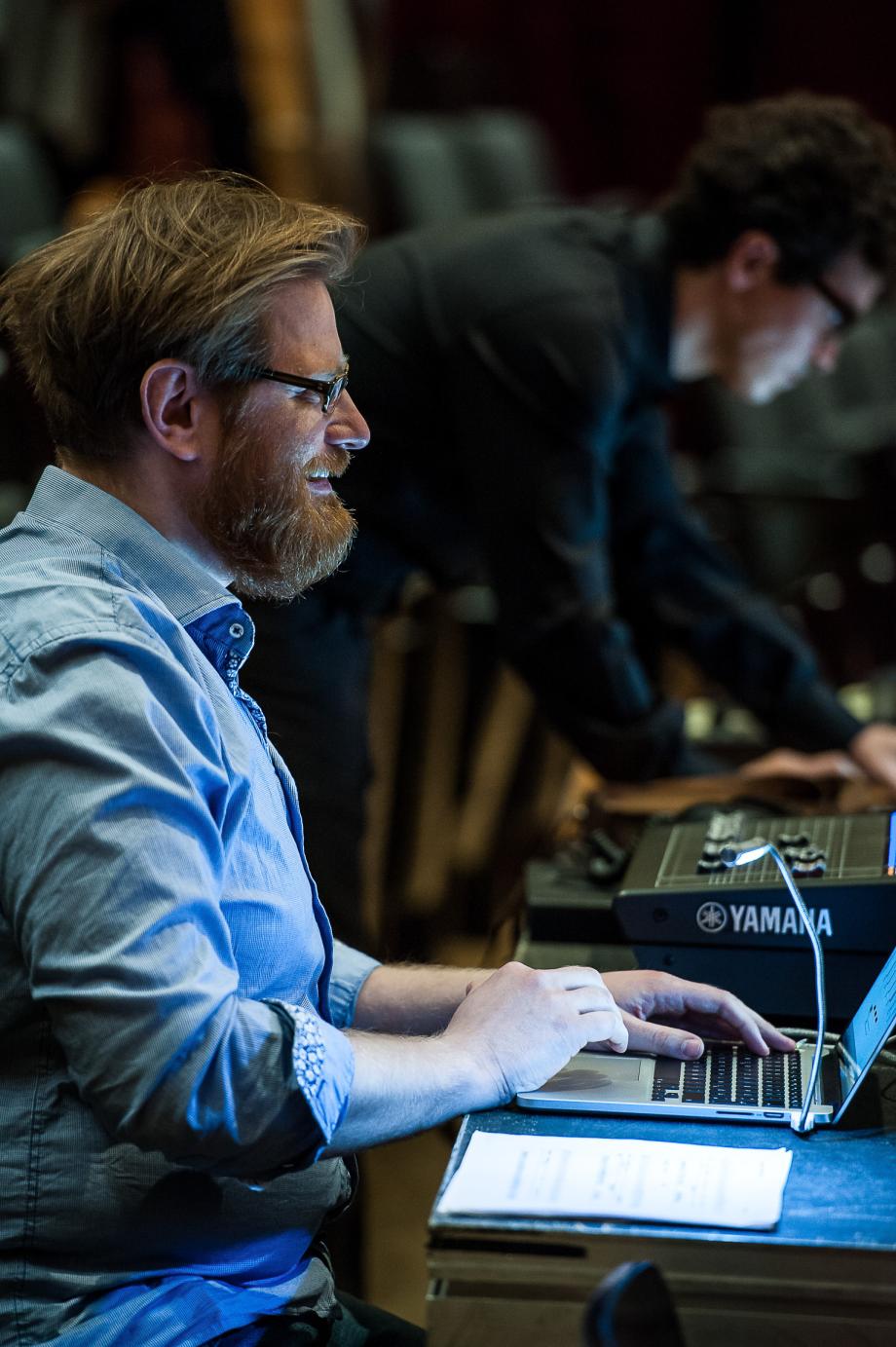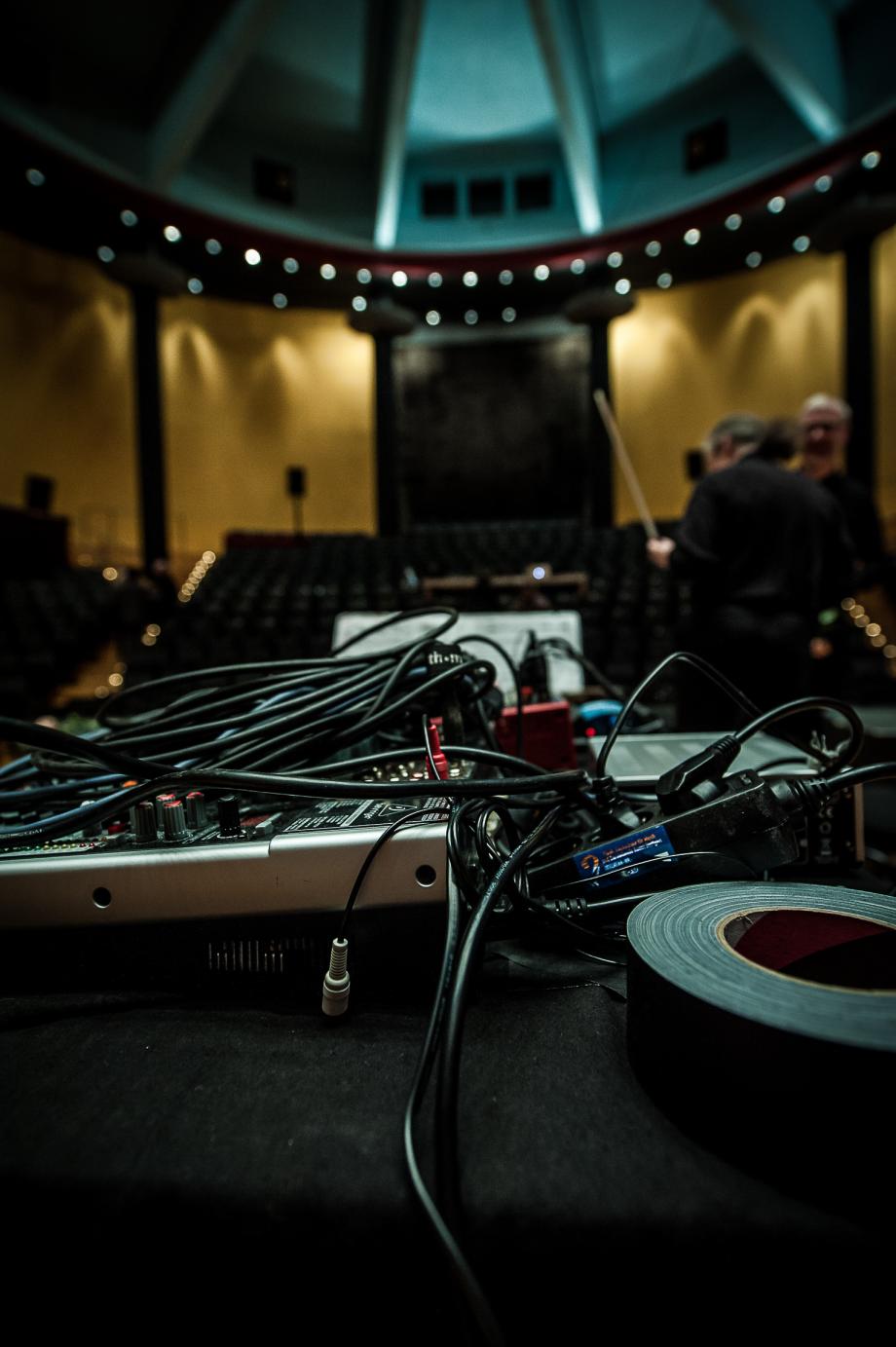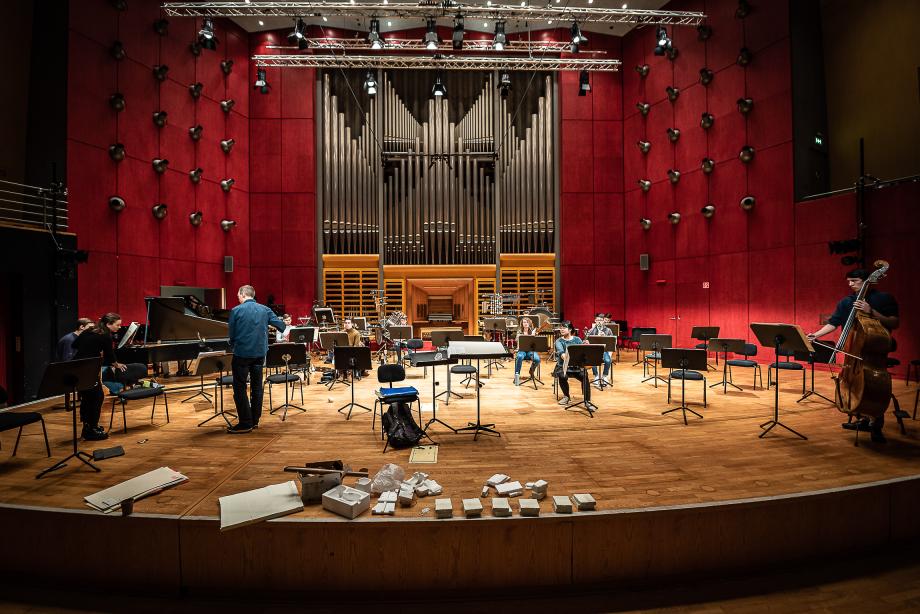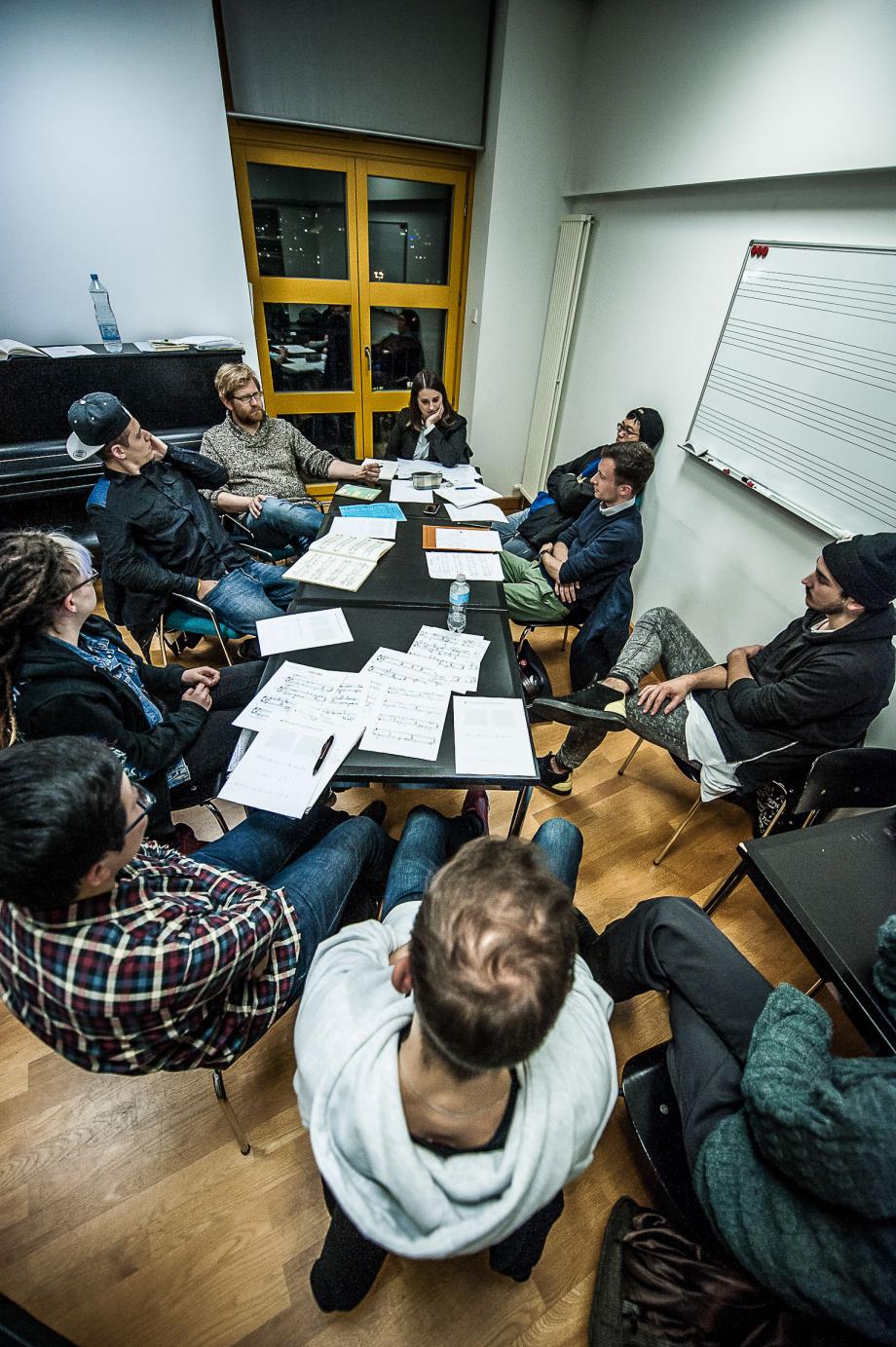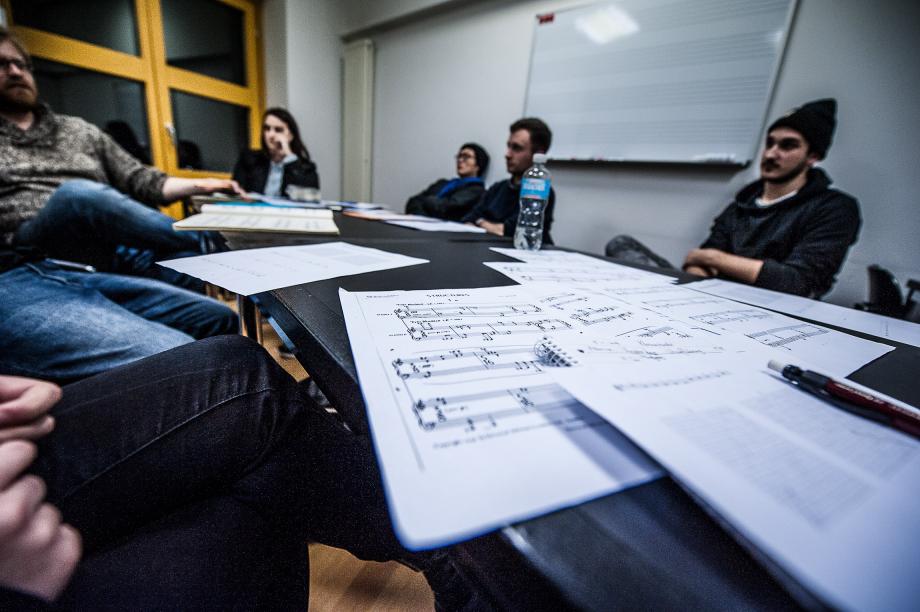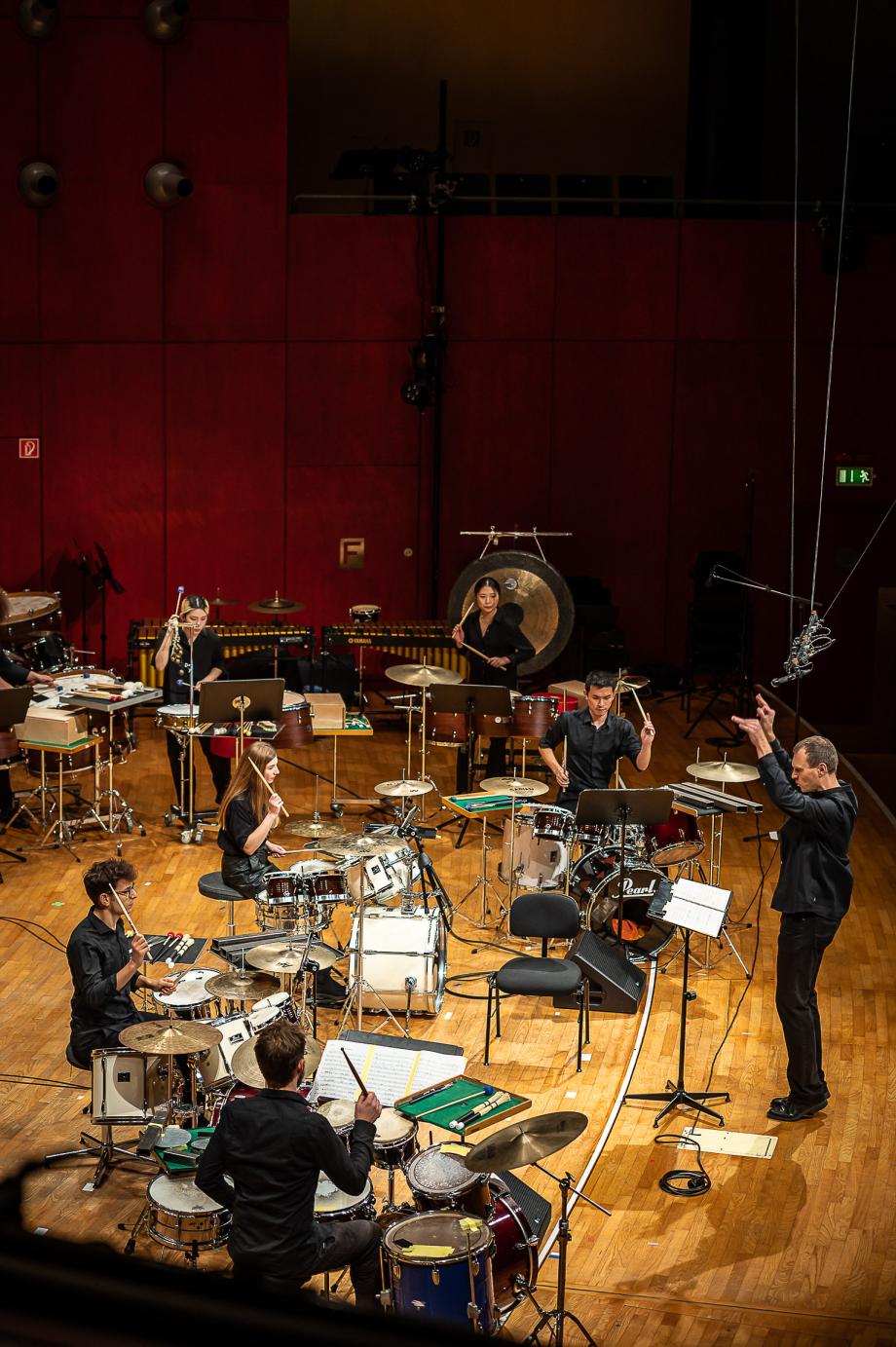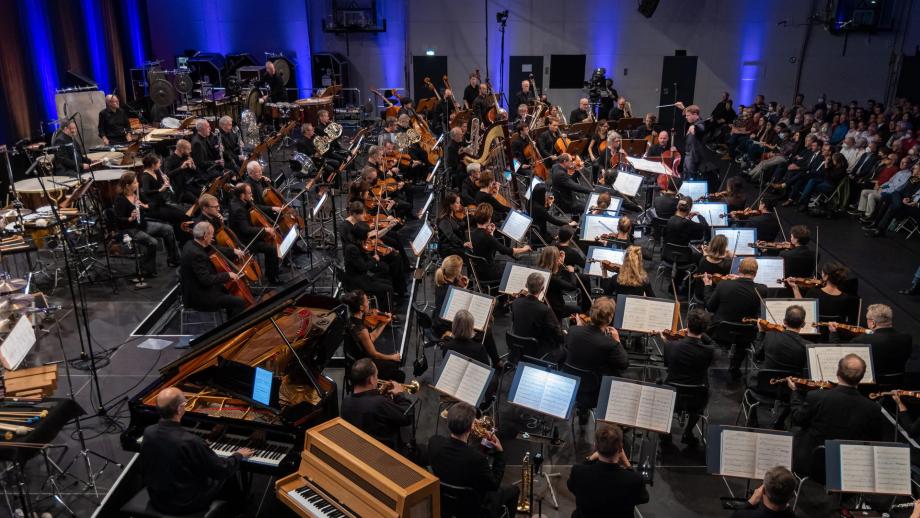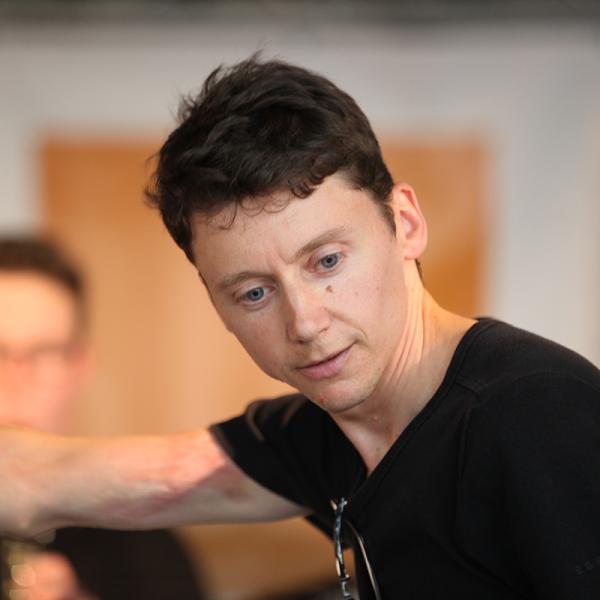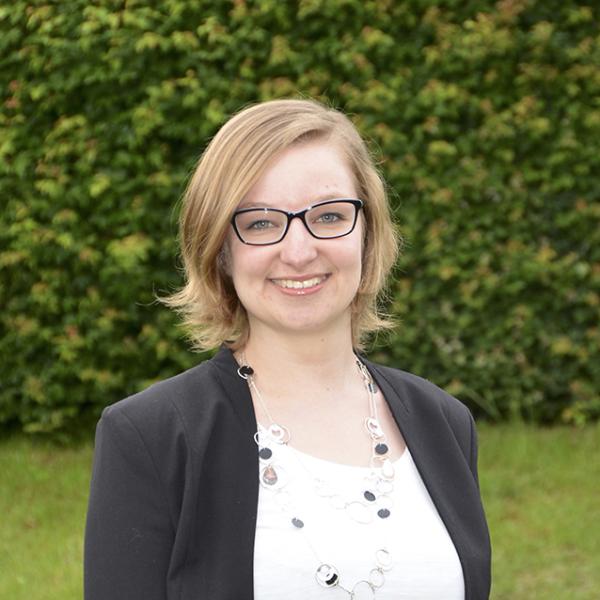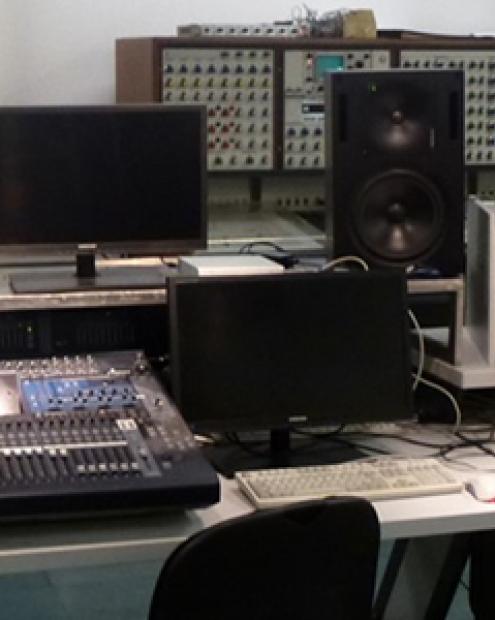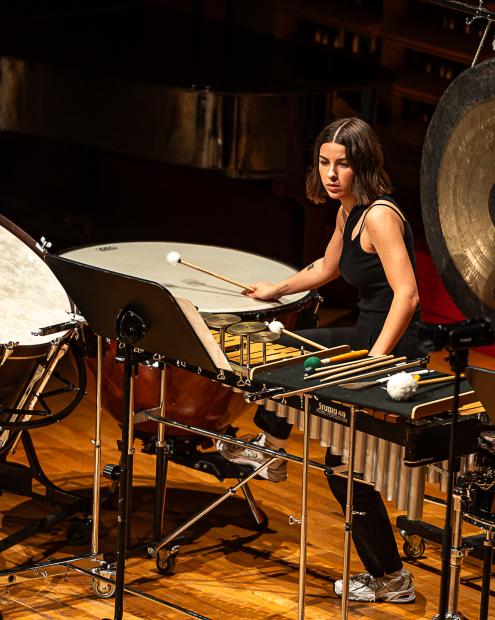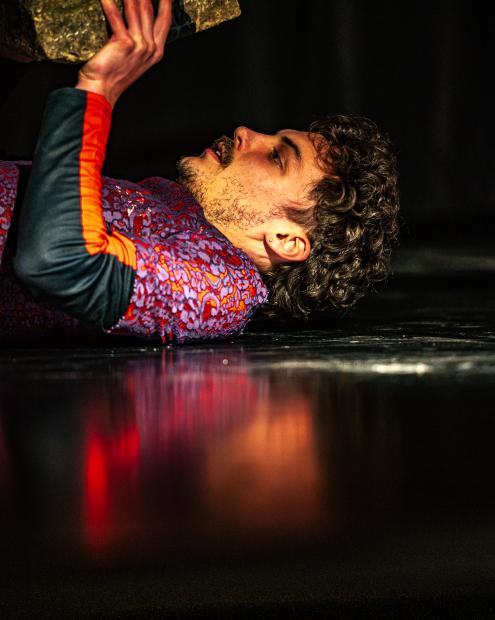Institute for Composition, Music Theory & Aural Training
Composition
The subject composition or composition/computer music is offered as a bachelor's, master's, concert exam, and CAS degree programme. The main subject instruction covers contemporary composition techniques and aesthetics, accompanied by seminars and exercises. The professionally well-equipped Studio for Electronic Music is available to students. Students are typically given the opportunity twice a semester to publicly present their newly created works in concerts. The Studio Neue Musik supports these performances with its ensemble, coordinates the activities of the university in the field of contemporary music, and organizes concerts, events, projects, and congresses. Composition lessons are also offered as a minor subject.
Music theory
The subject of music theory is taught as a compulsory subject and as a major subject. In the major subject, which is offered as a bachelor's or master's degree program, music theoretical knowledge about music from all periods is taught and deepened, and practical experiences and insights are provided through stylistic exercises. The master's degree program in music theory can also be studied in combination with music theory/aural training. A basic music theory course falls under the obligatory subjects, offered as a four or five-semester lecture series, with additional material being deepened in correction sessions. In specialized courses for wind players, string players, pianists, and singers, the subject of literature is offered as a combination of analysis and interpretation, as well as literature courses for contemporary music. Analysis seminars, courses in instrumentation, exercises in counterpoint and methodology, seminars in media practice, as well as lectures on introductions to historical and contemporary music encompass the range of the subject.
Aural training
The subject of Aural Training is particularly emphasized at the HMDK Stuttgart due to its teaching structure in small groups. Its study structure follows a modular system, consisting of four obligatory courses in the basic studies which are historically organized in Baroque-Classical, Classical-Romantic, Music from 1900 to 1940, and Music from 1945 onwards. In addition, there is the subject of Sound Perception, which is taught in all four modules. The four modules, each with a 90-minute lesson time, are spread over the four semesters of the basic studies. In both the undergraduate and graduate studies, additional seminars can be attended voluntarily for specialization and deepening. In addition to the compulsory modules, aural training courses are offered.
Practical Piano Playing
The piano is the central instrument of most music teachers in schools and is used daily. This allows for comprehensive, effective, versatile, and varied possibilities for structuring lessons, as there are a number of ways in which the piano can be used:
- as a fundamental instrument for practicing
- as an accompanying instrument for singing and in extracurricular activities with vocal and instrumental ensembles
- as an instrument for improvisation in stories, scenes, games, and dances
- as a demonstration instrument to illustrate musical parameters and to sonically represent different forms, styles, and genres in music and finally
- as an artistic instrument!
The significance of the subject "Practical Piano Playing" lies in its quality as an integration subject. Here, skills and abilities are taught to future school musicians that are closely related to daily school practice. At the same time, a connection to artistic action and thinking is also aimed for. Based on this, the subject of Practical Piano Playing and its content play a central role in the subject canon, as it allows for networking with almost all other musical subareas in the training of school musicians (music theory, aural training, rhythmic, singing, ensemble conducting). In school teaching practice, improvisational song play (international) folk songs and songs as well as accompaniment and improvisation in the realm of pop/rock/jazz music play a central role.
By using piano play that is adapted to the style of the respective song and expertly performed, a foundation is created for students to become sensitive to the different manifestations of music, recognize them, and categorize them. Thus, piano playing in music lessons with thoughtful accompaniment provides important prerequisites for developing the musical taste of students. Ultimately, a solid foundation in Practical Piano Playing, ranging from contemplative atmospheric play to groovy accompaniment, also serves as a significant motivational factor in teaching and illuminates the teacher in the eyes of the students not only as a theoretician of their field but also as a flexible practitioner in dealing with music.
Questions and Contact
